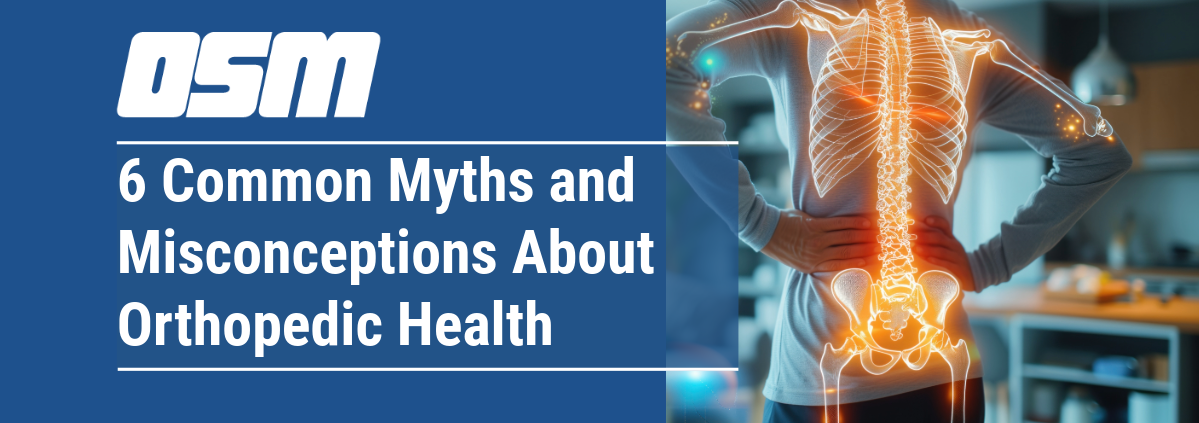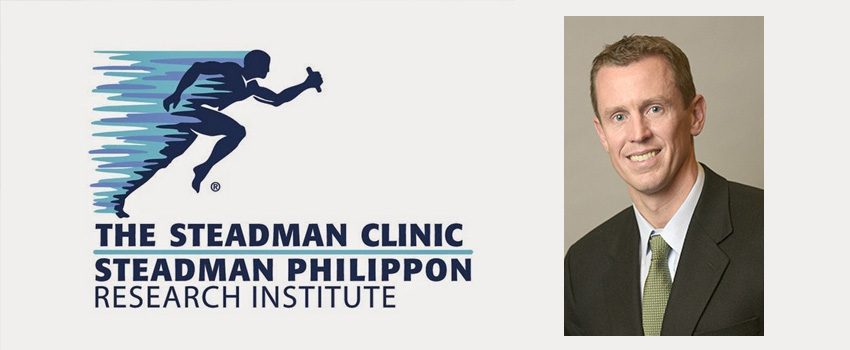6 Common Myths and Misconceptions About Orthopedic Health
Article featured on South Shore Orthopedics
Have you heard some crazy theories regarding orthopedic health? Orthopedic health encompasses the well-being of our bones, joints, muscles, ligaments, and tendons. However, several myths and misconceptions surrounding this field can lead to misunderstandings and potentially harmful beliefs.
Common Myths and Misconceptions
Myth 1: Only Athletes and Older Adults Need Orthopedic Care
One prevalent misconception is that orthopedic care is only necessary for athletes or older adults. While athletes and older individuals are more prone to orthopedic injuries and conditions, people of all ages and activity levels can experience orthopedic issues. Genetics, lifestyle, occupational hazards, and even accidents can contribute to orthopedic problems. Everyone needs to pay attention to their orthopedic health and seek appropriate care when needed.
Myth 2: Rest Is the Best Treatment for Orthopedic Injuries
Rest is an essential component of the recovery process for orthopedic injuries; however, it is not always the sole or best treatment. Depending on the nature and severity of the injury, a comprehensive treatment plan may include physical therapy, exercises, bracing, medications, or even surgery. Rest alone may lead to muscle weakness, joint stiffness, and delayed healing. It is crucial to consult a healthcare professional to determine the most appropriate treatment approach for each injury.
Myth 3: Orthopedic Surgery Should Be Avoided at All Costs
There is common myths that orthopedic surgery should be the last resort and avoided whenever possible. While surgery is not always necessary for orthopedic conditions, it can provide significant benefits in some instances. Advances in surgical techniques, minimally invasive procedures, and improved recovery protocols have made orthopedic surgery safer and more effective.
In some instances, surgery may be the most effective option to restore function, alleviate pain, and improve quality of life. Decisions regarding surgery should be made in consultation with a qualified orthopedic surgeon based on individual circumstances and medical advice.
Myth 4: Exercise Aggravates Orthopedic Conditions
Some people mistakenly believe exercise can worsen orthopedic conditions or lead to further damage. Appropriate exercise and physical activity are often prescribed as part of the treatment plan for orthopedic conditions. Exercise helps strengthen muscles, increase flexibility, promote joint stability, and improve overall function. However, it is crucial to engage in activities suitable for the specific condition and follow the guidance of a healthcare professional or physical therapist to ensure proper form and technique.
Myth 5: Orthopedic Conditions Are Inevitable with Aging
Aging is often associated with orthopedic conditions such as osteoarthritis. However, it is one of the common myths that these conditions are inevitable and nothing can be done to prevent or manage them. While age-related changes in our musculoskeletal system are natural, adopting a healthy lifestyle, engaging in regular physical activity, maintaining a balanced diet, and avoiding excessive strain on joints can help prevent or delay the onset of orthopedic conditions.
Additionally, early intervention, proper treatment, and lifestyle modifications can effectively manage orthopedic conditions and improve quality of life.
Myth 6: Over-the-Counter Medications Are Always Sufficient for Orthopedic Pain
Over-the-counter (OTC) pain medications, such as nonsteroidal anti-inflammatory drugs (NSAIDs), can help manage mild to moderate orthopedic pain. However, they may not always be sufficient for severe or chronic pain.
A healthcare professional should evaluate persistent pain or pain that interferes with daily activities to determine the underlying cause and appropriate treatment options. Prescription medications, physical therapy, injections, or other interventions may be necessary for effective pain management.
The Orthopedic & Sports Medicine Center of Oregon is an award-winning, board-certified orthopedic group located in downtown Portland Oregon. We utilize both surgical and nonsurgical means to treat musculoskeletal trauma, spine diseases, foot and ankle conditions, sports injuries, degenerative diseases, infections, tumors and congenital disorders.
Our mission is to return our patients back to pain-free mobility and full strength as quickly and painlessly as possible using both surgical and non-surgical orthopedic procedures.
Our expert physicians provide leading-edge, comprehensive care in the diagnosis and treatment of orthopedic conditions, including total joint replacement and sports medicine. We apply the latest state-of-the-art techniques in order to return our patients to their active lifestyle.
If you’re looking for compassionate, expert orthopedic and podiatric surgeons in Portland Oregon, contact OSM today.
Phone:
Address
17355 Lower Boones Ferry Rd Suite 100A
Lake Oswego, OR 97035
Hours
Monday–Friday
8:00am – 4:30pm


